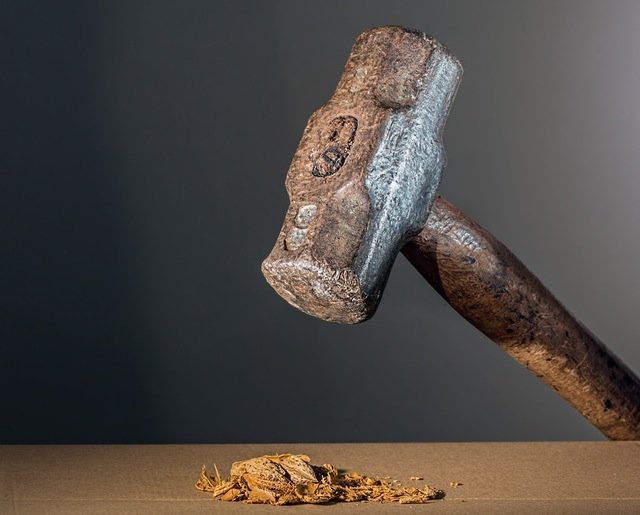The pendency of cases in Court of Law is a big challenge for Indian judicial process. This issue not only affects litigants but also creates a threat to national resources. It also violates Constitutional rights of “Speedy Trial” guaranteed under Article 21.
When we talk about pendency of cases, we generally consider the cases pending only in Civil and Criminal Courts, High Courts and Supreme Courts. We don’t consider cases pending before Tribunals, Revenue Courts and other quasi-judicial fora. Litigants whose cases are pending before the said quasi-judicial bodies, also have the rights of speedy trial, as cases before them are in relation to valuable rights of the citizens of India. A State without Litigation cannot be thought of; but being a Welfare State, efforts should be made to reduce litigation. The Latin Maxim “interest reipulicae ut sit finis litiuum” means it is in the interest of the State that there should be an end of law suit.
It is experienced that in Civil Courts and High Courts many litigants come after getting unsuccessful results in Revenue Courts and other quasi-judicial authorities. This is owing to the fact that under Article 227 of the Constitution of India, High Courts have Supervisory Jurisdiction. Furthermore, under Article 226, High Courts may issue Writs against orders, where no appeal lies in respective statutes. If quasi-judicial authorities do not perform their duty in proper manner, the unsuccessful party is bound to come before the High Courts. It means institution of cases in High Courts, to a great extent, depends upon the performance of quasi-judicial authorities.
Recently, while observing the functioning of quasi-judicial authorities, the Central Board of Excise and Customs issued Instructions to all its senior officials for following due process of law for adjudicating matters, conducting hearings and recording submissions of both parties in their judgments. The said Instruction noted that in its Order No 40344/2016 dated 29th February 2016 in the case of Commissioner of Customs (Import) Vs Do Best Info way, the Custom Excise & Service Tax Appellate Tribunal (CESTAT) has commented adversely at paras 9 to 13, and highlighted the casual manner in which the matter was handled by the Adjudicating Authority and the Commissioner (Appeal).
Process of passing Administrative Orders
The administrative officers, while passing their orders, ought to follow Departmental manuals, circulars and own administrative discretions. They must also base their findings on the recommendations of their subordinate staff, but not fully depend on them. While passing orders, they must exercise their own discretion and good conscious. They must not blindly follow their superiors. They must follow Rules of Law and procedure recognized by principles of natural justice. They must be guided by Judicial Precedents. If administrative authorities adopt such practice and procedure in adjudicating matters and passing orders, then automatically appeals against their orders would reduce.
Suggestions for Administrative Reforms:
- It is surprising that in many States, no statutory Rules have been framed for procedure to be followed in quasi-judicial proceedings. Like Civil Courts Rules and Orders, Rules of Procedure must be framed for quasi-judicial proceedings also. In this regard, the President of India and the Governors of States are empowered to frame Rules under Article 309 of the Constitution of India for central and state government employees respectively.
- The Government of India had framed the National Litigation Policy, in which the Central Government has expressed its vision/mission that its aim is to transform Government into an efficient and responsible litigant. This Policy expects that every State will formulate similar Litigation Policy. It is in the interest of society and Nation that every State must formulate a Litigation Policy.
- The States should also issue Administrative Circulars demonstrating how administrative authorities should pass orders in quasi judicial proceedings. In these circulars, specific guidelines must be given to the authorities. That will help to avoid procedural defects in quasi judicial proceedings.
- There should be an effective mechanism to control administrative officers working under undue political pressure. Until and unless administrative officers are protected from unnecessary harassment, effective and unbiased rulings cannot be expected from them.
- As the National Litigation Policy declares – “Government must cease to be compulsive litigants. The philosophy that matters should be left to the Courts for ultimate decision has to be discarded. The easy approach, ‘let the court decide’ must be eschewed and condemned”. In this light, one important strategy could be to appoint in all government departments Law Officers having suitable qualification and experience in the field of law, so that cases could be scrutinized and opinion on merits of each case could be taken at the initial stage. In those circumstances, the department will be prevented from unnecessary litigation.
Conclusion
The third joint conference of Chief Justices of all high courts and Chief Ministers of all states was held on 24 April 2016 in which the core agenda was “pendency of cases in the High Courts and Subordinate Courts”. In my humble opinion, Administrative Reforms is the foundation of Judicial Reforms. If we think about Judicial reforms then we must think about Administrative Reforms. It is imperative to understand that it is not the Union of India or other state governments that are parties in maximum cases against the government. A large number of such cases filed in Courts are the consequences of Government Orders.
